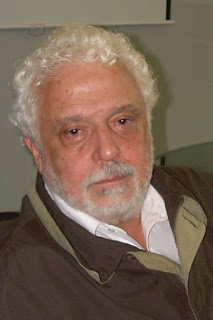Theotônio dos Santos, one of the main authors of the Latin American Dependency School, has passed away. I had some minimal contact with him, seeing some of his talks as an undergraduate, and then at a few conferences were we could talk a bit more, including after I had published this paper.When I was a student, I might add, I was basically taught that there were two dependency school traditions, and often the Marxist one, in which Theotônio and André Gunder Frank were the key figures, was seen, at my alma mater (the Federal University of Rio de Janeiro) at least, as the lesser one, with the Structuralist school, of Fernando Henrique Cardoso, being the 'good' one. In retrospect, given the political views (and some of the economic views too) that Cardoso came to defend from the late
Topics:
Matias Vernengo considers the following as important: Dependency Theory, Gunder Frank, Neoliberalism, structuralism, Theotônio dos Santos
This could be interesting, too:
Matias Vernengo writes Podcast with about the never ending crisis in Argentina
Matias Vernengo writes Trumponomics vs. Bidenomics: The good, the bad and the stupid
Matias Vernengo writes Maria da Conceição Tavares (1930-2024)
Matias Vernengo writes Debt cycles and the long term crisis of neoliberalism
Theotônio dos Santos, one of the main authors of the Latin American Dependency School, has passed away. I had some minimal contact with him, seeing some of his talks as an undergraduate, and then at a few conferences were we could talk a bit more, including after I had published this paper.
When I was a student, I might add, I was basically taught that there were two dependency school traditions, and often the Marxist one, in which Theotônio and André Gunder Frank were the key figures, was seen, at my alma mater (the Federal University of Rio de Janeiro) at least, as the lesser one, with the Structuralist school, of Fernando Henrique Cardoso, being the 'good' one. In retrospect, given the political views (and some of the economic views too) that Cardoso came to defend from the late 1980s onwards, with his adherence to Neoliberalism, I must conclude that my teachers might have been wrong.
An obituary in Portuguese here.

